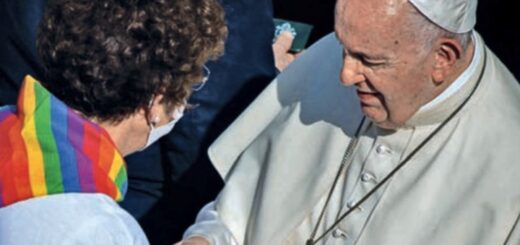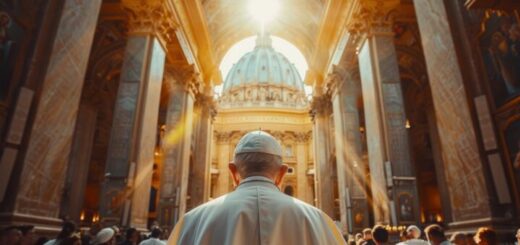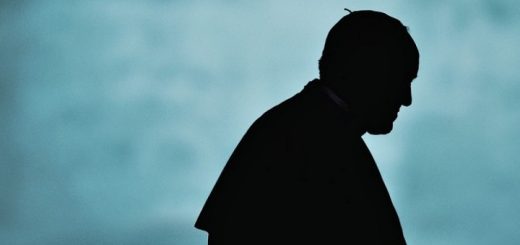Homosexuality in Arab culture
 Article taken from e-llico.com, translated by Domenico Afiero
Article taken from e-llico.com, translated by Domenico Afiero
If the West has overcome its taboos regarding homosexuality, the Arab world, which is subject to the influence of the West, aims to differentiate itself from it precisely in the defense of its traditional morality, which considers homosexuality an evil against which protect yourself. All this is said in the Quran in a few truly terrible lines.
Of course today there are changes in the Islamic world, in fact two tendencies in Islam are currently opposed: an ultra-conservative one, which wants an application of the Koran to the letter; the other instead which, although a minority, pushes for a 'modern interpretation' of the Holy Book. Malek Chebel, anthropologist and scholar of Islam, who has dedicated several works to the body, sexuality and homosexuality in Islam, talks to us about it
Islam does not directly use the word "homosexual", but in the Koran homosexuality is simply indicated as an evil against which one must protect oneself, all this is said in a few lines, but truly terrible ones. We talk about it with Malek Chebel, anthropologist and scholar of Islam, who has dedicated several works to the body, sexuality and homosexuality in Islam. For years he has been one of the most active supporters of an interpretation of the Koran that takes into account the evolution of the world.
What does Islam say about homosexuality?
Islam does not use the word "homosexual", but speaks of wicked people, Lot's people and degenerate people. Homosexuality is presented implicitly. In the Quran, homosexuality is considered an evil against which one must protect oneself. All this is said in a few truly terrible lines. In fact, the Koran clearly has as its object the preservation of order. It was about safeguarding the traditional family form, renewing the ancient order and condemning any other form of transgression, including unconventional forms of marriage.
Do sharia (Islamic law) and fiqh (principles of applying Islamic law) expressly condemn homosexuality?
Homosexuality has been one of the major prohibitions since the 8th and 9th centuries. But in Baghdad, in the 11th century, homosexual culture was very strong. Then there was a cult of beauty among the elite, who could easily protect themselves from the clergy and judicial sanctions.
In the 10th and 12th centuries, a homosexual culture inspired by that of ancient Greece also flourished and a literature on this topic was born. In fact, many Arabic poems compare the virtues of young ephebes with those of courtesans. Afterwards, on a general level, we witness a decay of Islam, a shift of jurists and theologians towards a more severe, more reactionary law.
This movement of closure, which continues today, claims to return to an original purity that never existed. A movement that pushes Islam to have a vision of itself that is intolerant towards gays as well as foreigners, designated as 'the others', respectively "endemic" and "exogenous".
Certain speeches make it clear that homosexuality is imported from the West and has nothing to do with Arab culture.
From the beginning, homosexuality has been an Arab cultural trait. Some actually want us to believe that it is an imported evil. You know, it's always the other person who brings evil! The West has freed itself from its 'complexes' and taboos regarding homosexuals. The Arab world suffers the impact of foreign ideas, innovations and economic influence. It suffers the influence of the West also conceived as an exporter of morality. There is therefore very little left for him to defend: morality in fact.
How do you explain Egypt's obsession with homosexuals?
The Egyptian clergy's desire to defend the territory is very evident. A regression in this country indicates the dominance of fundamentalist thinking over the powers that be. I believe that it is a congestion against a phenomenon that is very ancient and increasingly visible.
The situation is different in other Maghreb countries. In Tunisia, there was no persecution. In Morocco, homosexuals have freed themselves from the gaze of others, even if their speeches are always mocked. Even in Algeria, where the existence of homosexuality, even latent homosexuality, has always been denied, one sees people who declare themselves homosexual without fear of being stoned.
The situation is very different in Saudi Arabia
The presence of the two holiest cities of Islam in the Arabian Peninsula – Medina and Mecca – pushes Saudi Arabia to ascribe to itself the role of first defender of the strictest morals.
Indeed, there is real competition in the management of morality between Saudi Arabia, Iran and, before the American intervention, the Taliban's Afghanistan.
Today two tendencies are opposed: one, ultra-conservative, with an application of the Koran to the letter; the other, however, which pushes for a 'modern interpretation' of the Holy Book. How do you see the future?
These two trends exist, of course. On the other hand, the one that I have been embodying for a long time, that of a new interpretation of the Koran, is still in the minority. Today there is a diversification of access to information, a globalization of exchanges and a voracity of young people to want to have access to immediate usability. All this means that, in the long run, intransigent positions will have difficulty resisting.
Furthermore, we are witnessing the failure of the fundamentalists in Algeria; to the fall of the Taliban in Afghanistan and Sudan, a model to follow until a few years ago, emerges weakened. Sure, there are changes, but there is still a long way to go!
Original article






